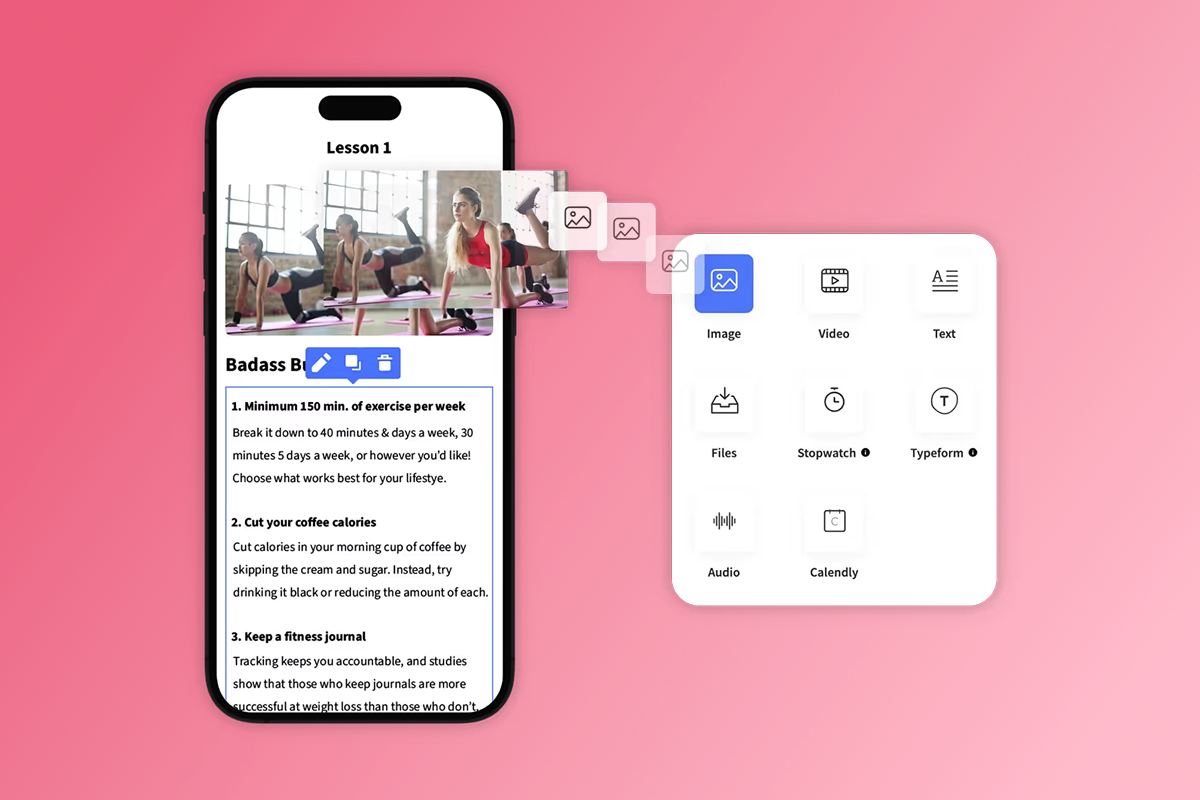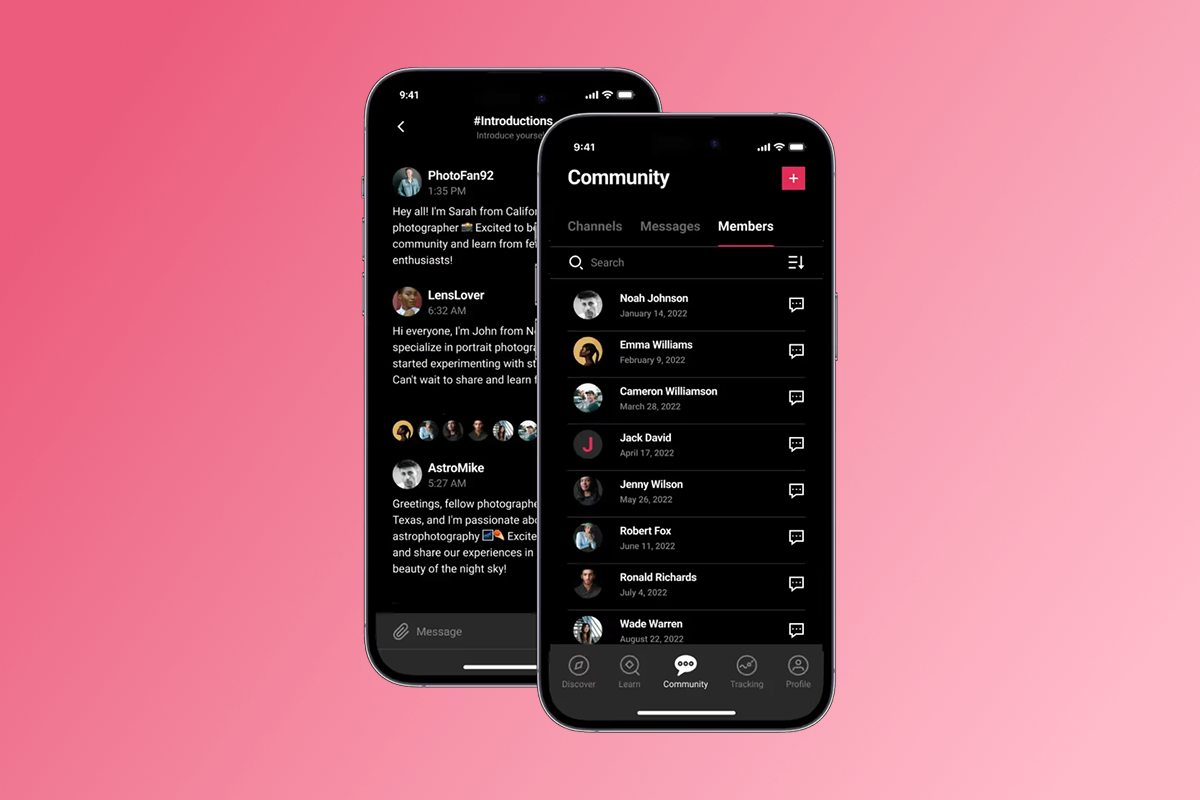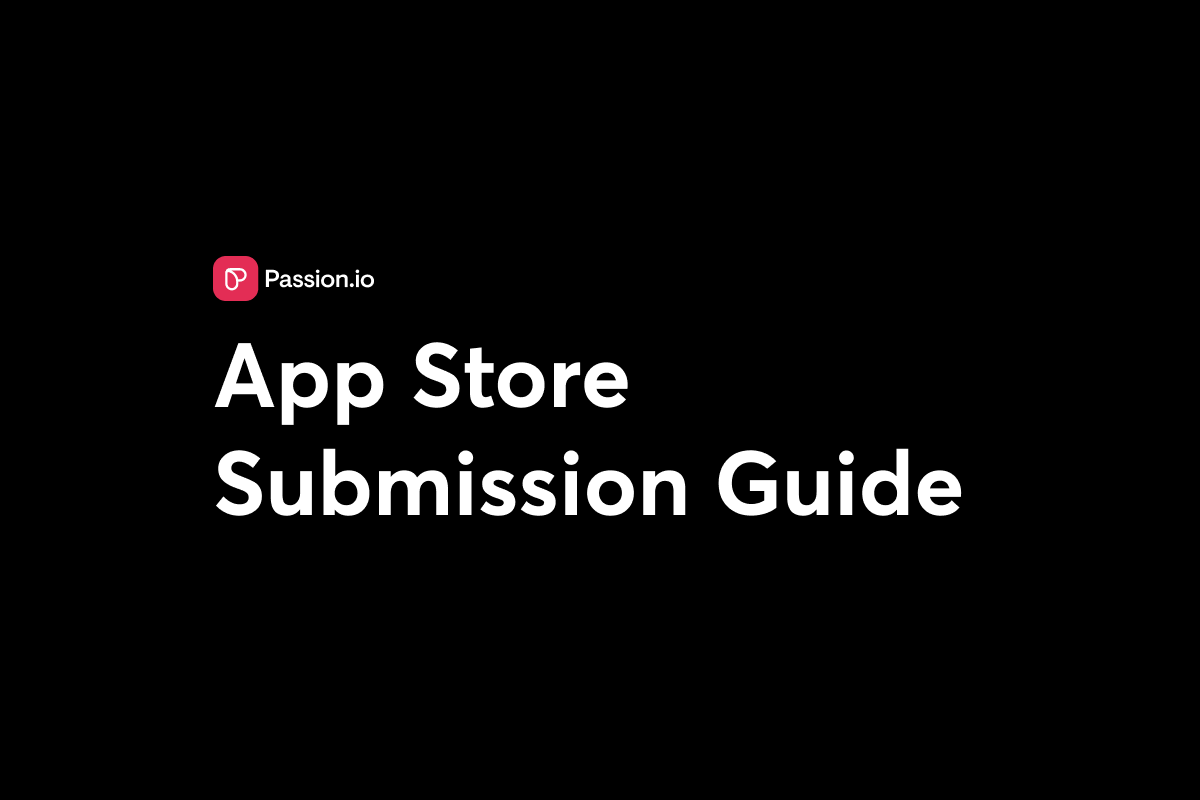Updated 3rd November, 2025
Waiting weeks for App Store approval will stall your entire launch when you're ready to turn your content into recurring revenue. Your branded app may be ready, but the App Store submission process looms as the final bottleneck between you and your first paying subscribers.
The good news is that App Store delays aren't inevitable. You can prevent most rejections and extended review times by addressing common rejection pitfalls before submission. By following a clear 3-step blueprint that addresses these common pitfalls head-on, Passion creators can significantly reduce their review times and launch with confidence.
This guide provides actionable strategies to prepare, optimize, and manage your app submission, aiming to cut review times and accelerate your path to market.
Why app store submission delays cost creators time and revenue
Every day your app sits in review is a day you're not building your subscriber base or generating revenue.
The impact of slow approvals on your launch plan
Launch timing matters. If you've promoted a specific date to your email list or social followers, a delayed approval can erode trust and excitement.
The financial impact compounds quickly. A creator charging $29/month who planned for 50 launch-week subscribers loses $1,450 in first-month revenue for every week of delay. For higher-ticket programs at $97/month, that jumps to $4,850 per week.
Multiply this across several months, and you're looking at significant MRR impact that's hard to recover. Beyond revenue loss, delayed launches disrupt your engagement targets. You can't start tracking toward the +15-30% completion lift that push notifications and in-app community typically drive in the first 90 days.
Common creator frustrations with app store complexity
Many creators find the App Store guidelines overwhelming and complex. Apple's Human Interface Guidelines span hundreds of pages. Google's Developer Policy Center covers everything from metadata requirements to privacy disclosures.
The most frustrating part? Rejections often come without detailed explanations. You might receive a vague "Guideline 2.1 - Information Needed" notice, leaving you to guess which specific element needs fixing. Each rejection-fix-resubmit cycle adds 2-7 days to your timeline.
How Passion simplifies app store submission for creators
Passion's platform is designed specifically to help non-technical creators handle app store submission successfully. Unlike custom development or generic app builders, every feature is built with store approval requirements in mind.
No-code app builder streamlines technical requirements

As a no-code platform, Passion handles the underlying technical complexities that often cause rejections. We generate stable, compliant code for iOS, Android, and web, significantly reducing rejections due to crashes or bugs from coding errors.
The drag-and-drop builder includes enhanced stability and improved app performance. You build visually while Passion manages the technical requirements behind the scenes. When app stores test your submission, reviewers find a polished, professionally-coded app rather than a buggy prototype.
Dedicated submission support on Expand and Plus plans
Higher-tier plans include direct app store submission support. On the Expand plan ($599/month annual), you get App Store listing support. The Plus plan includes done-for-you build, submission, and white-glove support with a dedicated success manager.
This support proves invaluable during the review process. When Apple or Google requests clarifications, you have experienced professionals who've managed hundreds of apps to guide your response.
"... she is great! She was able not only to follow through but also found something wrong with my STRIPE account that I was not aware of. She is super friendly and helpful!" - Jennifer Lopez on Trustpilot
Even on the Launch plan ($99/month annual), you access Passion's Help Center with submission checklists and chat support within the app.
Clear guidelines and checklists within the platform
"Passion makes building your own e-learning app fast, simple, and stress-free. With their no-code, drag-and-drop platform, I was able to design, build, and launch a fully functional app in just a few hours—no tech experience required." - Rob M. on G2
Passion offers a pre-submission checklist that addresses the most common rejection causes. The platform's structured approach helps you avoid common delays by providing clear pre-submission guidance and built-in compliance checks.
The checklist includes critical questions like "Does your app have at least 5 lessons?" and "Have you replaced all template images, videos, and text?" This guided approach is crucial because over 40% of unresolved app review issues relate to app completeness.

Step 1: Prepare your app and developer accounts for submission
Thorough preparation is the foundation of a fast app store approval. This step involves completing your content, setting up the right accounts, and understanding what reviewers will check.
Content and design checklist for app store readiness
You must ensure your app is fully functional and free of placeholder content before submission. Apple specifically rejects incomplete app bundles with crashes, placeholder text, or broken links.
Your app must address these requirements:
- Minimum content: Publish at least five complete lessons with no placeholder text, broken links, or "unlocking soon" messages.
- Media replacement: Replace all template images, videos, and text with your branded content.
- Feature verification: Test every advertised feature including quizzes, drip content, and progress tracking.
- Demo access: Provide active demo credentials with full permissions so reviewers can access all features.
- Screenshots: Create high-quality in-app screenshots showing actual functionality, avoiding Android frames or potentially flagged images.
Setting up Apple and Google developer accounts
You need separate developer accounts for each platform. For Apple, enroll in the Apple Developer Program at $99 per year. For Google, register for Google Play Console with a one-time $25 fee.
Set up these accounts in Week 1 of your submission timeline. Account approval can take several days, and you can't submit without approved accounts. Use accurate business information. Apple and Google verify your identity and may request additional documentation.
Accept all Apple agreements in App Store Connect. They should appear green when properly accepted. Failure to accept these agreements is a common cause of submission holds.
Understanding app store guidelines for metadata, screenshots, and privacy
Both platforms have strict metadata requirements. Your app title should clearly indicate its primary purpose in 30 characters or less. Avoid promotional language, pricing claims, or temporary promotional text like "50% off this week."
You must create a clear privacy policy that details what data you collect, how you use it, and how users can delete their data. Link to this policy both within your app and in your store listing metadata. Passion provides default Terms of Service and Privacy Policy templates but strongly recommends customizing them to reflect your specific data handling practices.
For keywords, choose terms directly relevant to your app's functionality. Avoid keyword stuffing in titles or descriptions. Apple provides a 100-character keyword field where you should use single, relevant keywords separated by commas.
Step 2: Optimize your submission for faster review
Once your app and accounts are ready, optimization focuses on crafting a submission that reviewers can approve quickly without questions or clarifications.
Crafting a clear and concise review note
The review notes section is your direct communication with app store reviewers. Use it to provide context that makes their job easier and speeds up the process.
Include fully functional demo account credentials if your app has gated content. Provide username, password, and clear instructions for accessing all features.
Explain your monetization model clearly. If you use PassionPayments for web checkouts and in-app purchases for mobile, describe this in your review notes. Clarify that purchases made through the web app grant access within the mobile app.
Keep review notes concise. Use bullet points for multiple items.
Thoroughly testing your app before submission
Testing catches bugs that would otherwise trigger instant rejection. Reviewers almost always reject apps that crash or freeze during testing.
Follow this test sequence before submission:
- Device compatibility: Test on multiple devices and OS versions, including the latest iOS/Android and various screen sizes. Verify your content displays correctly everywhere.
- Interactive features: Check quizzes, progress tracking, drip content schedules, and push notifications. Verify videos play smoothly and PDFs download for offline access.
- Payment flows: Test both monthly and annual subscription tiers. Verify web checkouts via PassionPayments and in-app purchases if enabled. Ensure access grants properly after purchase.
- New user onboarding: Run through your onboarding as a first-time user. Check welcome messages, first-lesson access, and community invitations all trigger correctly.
Common rejection reasons and how to avoid them
Understanding common rejection causes helps you proactively address them. The top categories are app completeness, misleading information, privacy violations, and payment issues.
App completeness issues account for over 40% of rejections. You avoid these by ensuring no placeholder text, broken links, or "coming soon" messages. Every advertised feature must be present and functional.
Misleading or inaccurate metadata causes frequent rejections. Your screenshots must be taken directly from the app, not mockups or marketing images. Descriptions must match actual functionality.
Privacy policy violations are increasingly common. For apps requiring account creation, provide an in-app account deletion pathway.
Monetization issues often stem from incorrect in-app purchase implementation. For iOS apps, avoid apparent links that send users outside the app to buy content. Passion recommends selling high-ticket plans through the web app using PassionPayments to avoid app store delays and commissions.
Step 3: Manage post-submission and updates efficiently
After submission, proactive management keeps your launch on track and sets you up for smooth future updates.
Communicating effectively with app reviewers
When Apple or Google requests clarification, respond promptly and directly. Analyze the feedback carefully and address each point raised.
For Apple, if you need urgent approval for a time-sensitive event or critical bug fix, request an expedited review through App Store Connect. Apple typically approves these requests in 4-12 hours. However, Apple grants expedited reviews only for critical bug fixes or time-sensitive launches, and you can request them sparingly (typically 1-2 per year per app). Use this option only when standard review timing would cause significant business impact.
For Google Play, use the Play Console support chat or email for queries. Keep communication professional and solution-focused.
Handling rejections and resubmissions promptly
If your app is rejected, the key is understanding the issue, fixing it completely, and resubmitting quickly.
Read the rejection notice carefully. Identify the specific guideline violated and research what the guideline requires.
Make all necessary fixes before resubmitting. Test thoroughly after each change to ensure your fixes didn't create new problems.
In your resubmission notes, clearly explain how you addressed each rejection reason. This clarity helps reviewers quickly verify your fixes.
Planning for future updates and app maintenance
Your submission work doesn't end at approval. Plan for regular updates to fix bugs, improve performance, and add features. Apps that haven't been updated in over a year may be flagged or removed by Apple.
Before submitting updates, test thoroughly on multiple devices and OS versions. Minor updates can be approved in a few hours, but ensure they're stable.
Stay informed about changing guidelines, especially regarding privacy, AI features, and in-app purchases. App store policies are "living documents" that change regularly.
What are the costs and timelines for app store submission?
Understanding the financial and time investment helps you plan your launch budget and timeline accurately.
Developer program fees and typical review timelines
For Apple, 90% of submissions are reviewed within 24 hours. New apps typically take 24-48 hours, while updates might take 12-24 hours. However, review times can stretch to a week during busy periods like holidays or major iOS releases.
For Google, new apps generally take 1-3 days for review, though some sources cite up to 7 days for sensitive categories. Minor updates can be approved in a few hours, but any changes made during the review process reset the timeline and require starting over.
Plan your launch timeline with a 1-2 week buffer for unexpected delays. If targeting a specific launch date, submit 2-3 weeks early to accommodate potential rejections and resubmissions.
Passion plan features and submission support
Passion's plan structure affects submission support. The Launch plan ($99/month annual) provides basic submission guidance through the Help Center and checklists. The Scale plan ($239/month annual) adds expanded features but similar DIY submission.
The Expand plan ($599/month annual) includes App Store listing support. The Plus plan ($10,000-$20,000 custom scope) offers done-for-you submission with white-glove support. Learn more about Passion's pricing tiers and what's included.
For creators comfortable with technical processes and willing to follow detailed guides, the Launch plan at $99/month annual provides submission guidance that can achieve success. If you're targeting an aggressive launch within 4-6 weeks and need expert guidance, the Expand plan's $599/month investment can save 10-20 hours of troubleshooting time and prevent costly rejection delays.
Additional cost considerations include Passion's PassionPayments web fee of 3.9% plus Stripe processing for web checkouts. In-app purchases incur Apple or Google fees of 15-30%, depending on your revenue and program qualification, but Passion adds no platform fee to IAPs.
Ready to launch your Passion app?
Start today. Try Passion with a 30-day money-back guarantee and verify trial status at signup.
Specific FAQs
How long does Apple App Store review actually take in 2025?
Apple reviews 90% of submissions in under 24 hours. Expect 24-48 hours for new apps and 12-24 hours for updates, with peak periods extending to a week.
What's the difference in submission costs between Apple and Google?
Apple charges $99 annually for the Developer Program while Google charges a one-time $25 fee, totaling $124 first year and $99/year ongoing for Apple only.
Can Passion submit my app to stores for me?
The Expand plan ($599/month annual) includes App Store listing support, while the Plus plan ($10,000-$20,000) offers done-for-you submission with white-glove guidance.
What's the most common reason Passion apps get rejected?
App completeness issues cause over 40% of rejections from placeholder content or incomplete lessons. Use the pre-submission checklist to avoid these.
Should I use PassionPayments or in-app purchases for my app?
Use PassionPayments (3.9% platform fee) for high-ticket web sales and in-app purchases (15-30% to stores) for mobile convenience, directing users to web checkouts from the app to avoid policy violations.
Key terms glossary
App Store Connect: Apple's web-based portal where developers submit apps, manage metadata, track reviews, and respond to reviewer feedback for iOS app distribution.
Google Play Console: Google's developer dashboard for submitting Android apps, managing releases, monitoring reviews, and accessing performance analytics and policy compliance tools.
In-App Purchase (IAP): Digital content or subscriptions purchased within a mobile app, subject to 15-30% platform fees from Apple or Google, with no additional Passion platform fee.
PassionPayments: Passion's built-in web checkout gateway using Stripe, charging a 3.9% platform fee plus standard Stripe processing, allowing creators to bypass app store commissions on web purchases.
Review Notes: The section in app submission where creators provide demo credentials, usage instructions, and context to help reviewers efficiently test and approve the app.
Metadata: App information displayed in store listings, including title, description, keywords, screenshots, and privacy details that must accurately reflect app functionality to avoid rejection.














